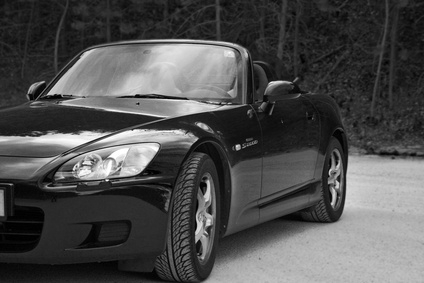
The fuel filter in any Honda automobile should be replaced every 30,000 miles. Drivers that push vehicles farther on the same fuel filters risk diminished fuel economy, weakened engine power and even damage to other engine parts. A vehicle experiencing these symptoms must be attended to immediately to avoid serious damage to spark plugs and other engine components that could end up costing a Honda owner a lot more than just the cost of a replacement fuel filter.
A clogged or damaged fuel filter will disrupt the flow of fuel into the engine block. The car will hesitate, or the engine will sputter during acceleration. This can be accompanied by a shake in the Honda's body--in particular with Civics and the CRV (which was built using the Civic chassis), which have predominantly all-fiberglass frames.
An engine with abnormal combustion because of diminished fuel flow has reduced power output. The car will have an inability to maintain high speed and slow acceleration--not to be confused with hesitation, which causes more vibration and engine sputtering. The Honda fuel filter usually is next to the battery and is relatively simple to check for clogs.
Lack of fuel flow into the engine can throw off the delicate timing of Honda's fuel-injected engines. As a result, a blocked fuel filter can cause engine misfires, even causing unspent fuel to foul up sparked plugs and damage the nearby battery. A completely blocked fuel filter will result in the vehicle being unable start at all. The driver will hear the engine crank (the sound of the engine attempting to turn over), but without adequate fuel, the engine simply will stall or be shut down by the on-board computer.